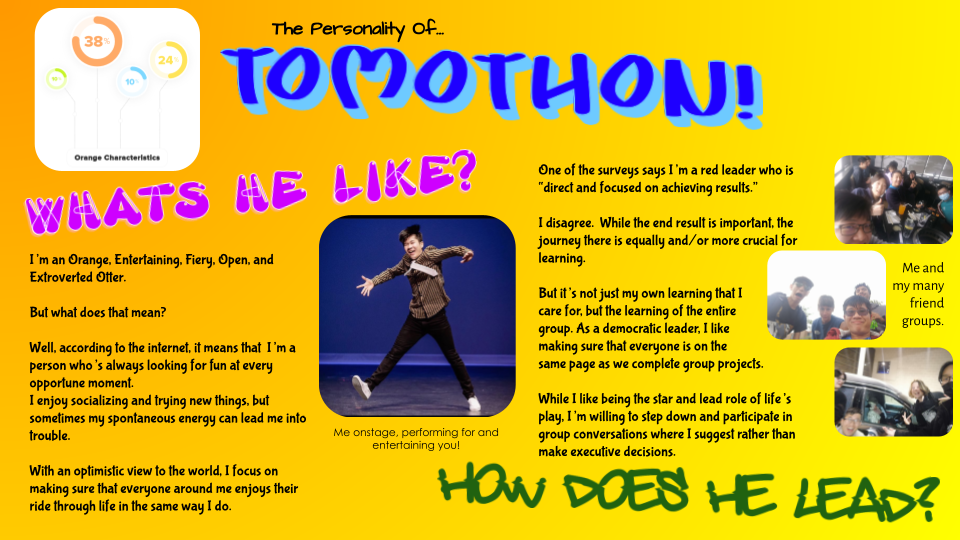Team Building Presentation
Date: September 15
This was my first ever project of the course. In it, we were to design our own drama game (or Team Building Activity as Mr. Steckley put it) in order to get familiar with others, build relationships, develop trust, foster group interaction, stimulate creative thinking, and create a postive group culture. The point was to get everyone as a group participating in your game, without anyone feeling left out or with unfair advantages.
While we were allowed to use pre-existing games for our presentation, I wanted to do something different to go above and beyond.
So, I came up with my own game called...
Title Flytrap
The premise of Flytrap is simple. Everyone is a fly buzzing the room.
All of a sudden, the ground becomes flypaper! Everybody's feet are stuck to the ground, and they can no longer move around!
In order for the flies to escape, they have to work as a team in order to fly off of the trap.
One person, the "Lord of the Flies" will start by pointing at and calling the name of another fly.
Each subsequent fly has to point to and call the name of another fly that hasn't already been pointed at until the last fly has been called.
At this point, the last fly has to point to the first fly who started the chain and call their name.
If done succesfully, the flies as a team are able to outstrength the trap, and are free to buzz off around the room again.

Final Grade:
Preparation (Knowledge/Understanding) 4+
Activity Choice (Thinking/Inquiry) 4-
Delivery (Application) 100%
Mark: 91/100
From the feedback I got from Mr. Steckley and my own personal reflection, I think I did a very good job with the presentation and game.
The game was fun and engaging, and I was able to lead through it effectively from beginning to end.
I had an excellent introduction and explanation of the rules, and the instructions were easy and simple to follow.
I provided great enthusiasm and energy, and made sure that everyone was able to participate.
Also, one of the criteria for the game was that each round was supposed to progress in a way to make it more challenging. I did so by adding changes to initial game, such as only one foot stuck to the ground at a time, or a hand stuck to the ground.
All in all, this was a great first example of my leadership abilities at work.

Check out my Youtube Channel:
Tomothon Studios
Follow Me On
Social Instagram